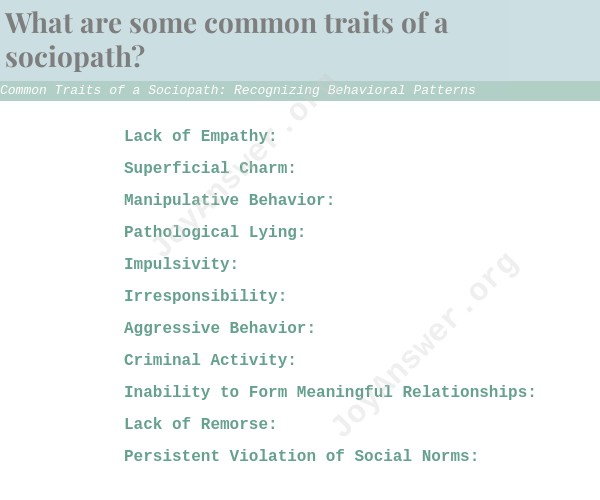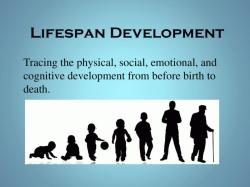What are some common traits of a sociopath?
Sociopathy, also referred to as Antisocial Personality Disorder (ASPD), is a complex psychological condition characterized by a pattern of manipulative, deceitful, and often criminal behavior. It's important to note that diagnosing a sociopath should be done by a qualified mental health professional. Here are some common traits associated with sociopathy:
Lack of Empathy: Sociopaths typically have a profound lack of empathy for others. They struggle to understand or care about the feelings and suffering of people around them.
Superficial Charm: They can be very charming and charismatic, which can make it difficult to recognize their underlying manipulative tendencies.
Manipulative Behavior: Sociopaths are skilled manipulators. They use charm and deceit to exploit others for personal gain.
Pathological Lying: They lie habitually, often without any apparent reason or benefit. Lies may be elaborate and convincing.
Impulsivity: Sociopaths tend to act impulsively without considering the consequences of their actions. They may engage in risky behaviors, such as criminal activities or substance abuse.
Irresponsibility: A lack of accountability and an inability to hold down a job or maintain stable relationships are common traits.
Aggressive Behavior: They may display aggression, irritability, and a tendency to get into physical fights or conflicts.
Criminal Activity: Many sociopaths have a history of criminal behavior, which can range from theft and fraud to more serious offenses like violence or sexual assault.
Inability to Form Meaningful Relationships: Sociopaths often have shallow, short-lived relationships. They may use others for personal gain and discard them when they're no longer useful.
Lack of Remorse: Sociopaths rarely feel remorse or guilt for their actions. They may rationalize their behavior or blame others.
Persistent Violation of Social Norms: They consistently disregard societal rules and norms, which can lead to a criminal record.
Difficulty in Maintaining Employment: Sociopaths may struggle to maintain a stable job due to their impulsivity, unreliability, and interpersonal conflicts.
Recklessness: They often engage in reckless behavior without concern for their safety or the safety of others.
It's important to remember that not all individuals who display some of these traits are sociopaths, and a formal diagnosis should be made by a mental health professional. Furthermore, treatment for antisocial personality disorder can be challenging, as individuals with this condition may not seek help voluntarily and may resist treatment efforts. If you suspect someone you know may have traits of sociopathy, it's important to seek guidance from a mental health expert or counselor for proper assessment and guidance.













